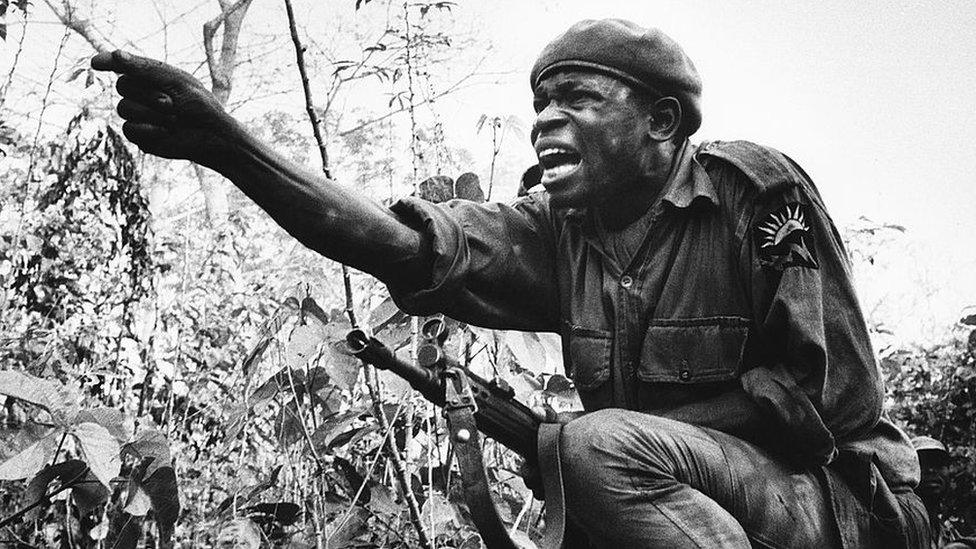Nigerian separatist Nnamdi Kanu's Facebook account removed for hate speech
- Published
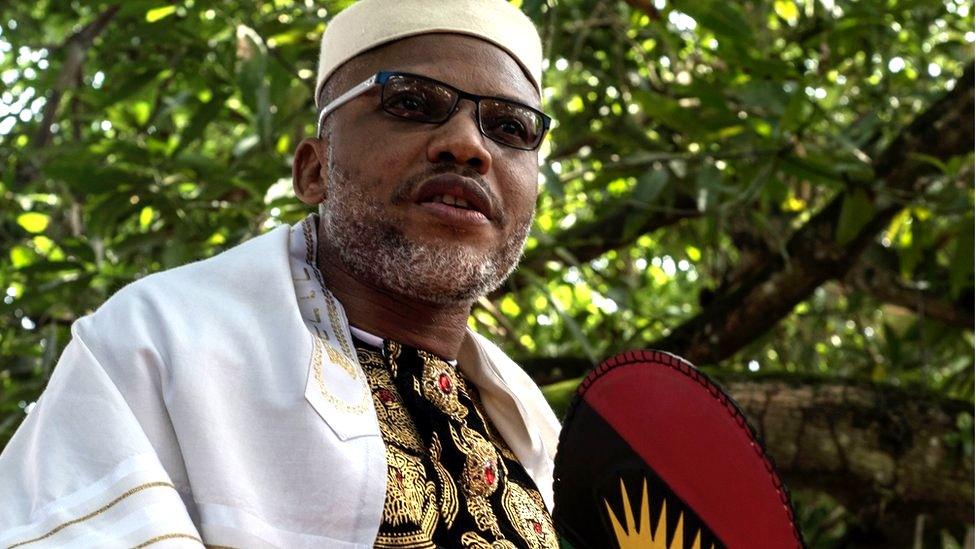
Nnamdi Kanu wants independence for south-eastern Nigeria
Facebook says it removed the page of Nigerian separatist leader Nnamdi Kanu for violating its rules on harm and hate speech.
Mr Kanu's page was removed for repeated violation of its community rules, the social networking site told the BBC.
He had posted a video of a militia group attacking and killing cattle in a herders' settlement.
He also used the live broadcast to accuse herders of destroying farmlands in eastern Nigeria.
The conflict between herders and other groups is currently one of Nigeria's hottest political issues.
Mr Kanu leads the Indigenous People of Biafra (Ipob), which campaigns for independence for Nigeria's south-eastern region, where the ethnic Igbo people form the majority.
The herders are mostly from the northern Fulani community.
Mr Kanu, who also has British nationality, used his Facebook page as a key platform to communicate with his followers around the world.
The account was blocked on Tuesday.
'Suppressing the truth'
The militia carrying out the attack in the video he posted are suspected to be from the Eastern Security Network, which Mr Kanu set up.
A Facebook spokesperson told BBC Igbo: "In line with our rules, we removed Nnamdi Kanu's page for repeatedly posting content that break those Community Standards, including content that violated our rules on coordinating harm and hate speech."
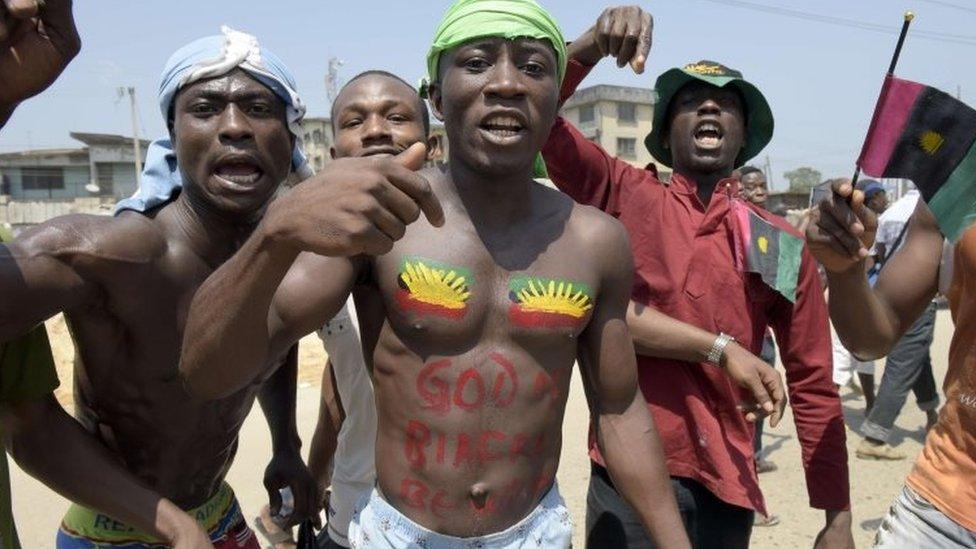
Nnamdi Kanu has a huge following in south-eastern Nigeria
Ipob says it will appeal against the ban, describing the action of Facebook "as not only baffling but too petty".
"We wonder why a global social media giant like Facebook would allow itself to be used by agents of oppression in Nigeria to suppress the truth," head of media Emma Powerful said.
Ipob is proscribed in Nigeria, which labelled it a terrorist organisation in 2017.
Nnamdi Kanu came to fame in 2009 when he started Radio Biafra and broadcast to Nigeria from London, using the platform to call for Biafran independence and urging his followers to take up arms against the Nigerian state.

Who are Ipob?
Founded by Nnamdi Kanu in 2014
Proscribed as a terrorist group by Nigeria in 2017
The group wants states in south-east Nigeria, made up mainly of people from the Igbo ethnic group, to break away and form the independent nation of Biafra
Mr Kanu was arrested in 2015 in Nigeria and spent more than a year-and-a-half in jail without trial on treason charges
At least 150 Ipob members were killed by Nigerian security forces between August 2015 and August 2016, according to Amnesty International
Mr Kanu, a British citizen, jumped bail and fled the country in 2017

How will this ban affect Nnamdi Kanu?
By Chiagozie Nwonwu, BBC Igbo, Lagos
Before the ban by Facebook, he created an app called Ipob Community Radio and asked his followers to get on it.
With this app, Mr Kanu bypasses social media censorship.
He's also asked his followers to move to Twitter but if he continues with the same rhetoric and controversial comments, he might not last long there.
He however appears to be more measured on Twitter, where he is currently trying to get verified.
At the moment he's likely to resort to using the Facebook accounts of Ipob and Radio Biafra and the hundreds of Ipob-affiliated pages, which are not affected, but it would be interesting to see if he changes his tone.
But since that's his selling point, this is probably unlikely.
Related topics
- Published5 May 2017
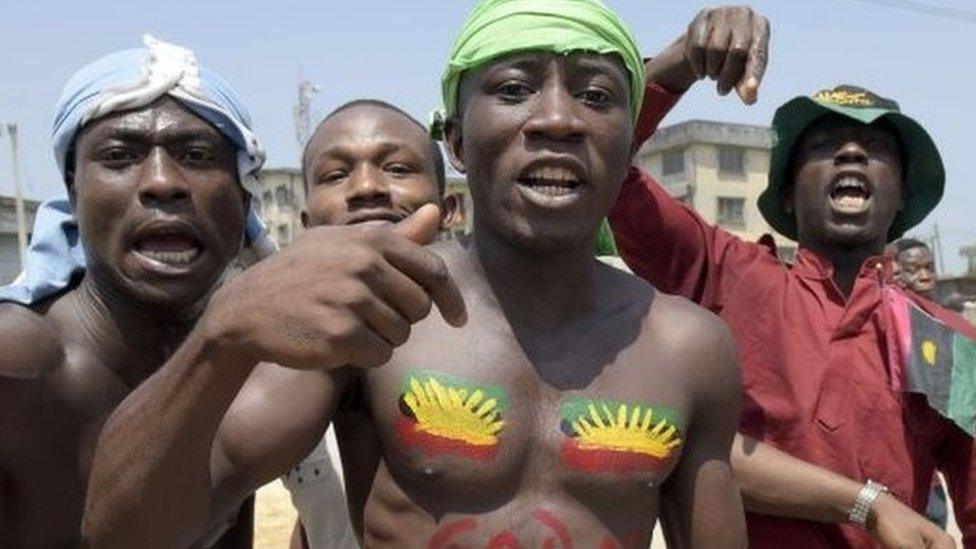
- Published30 November 2015
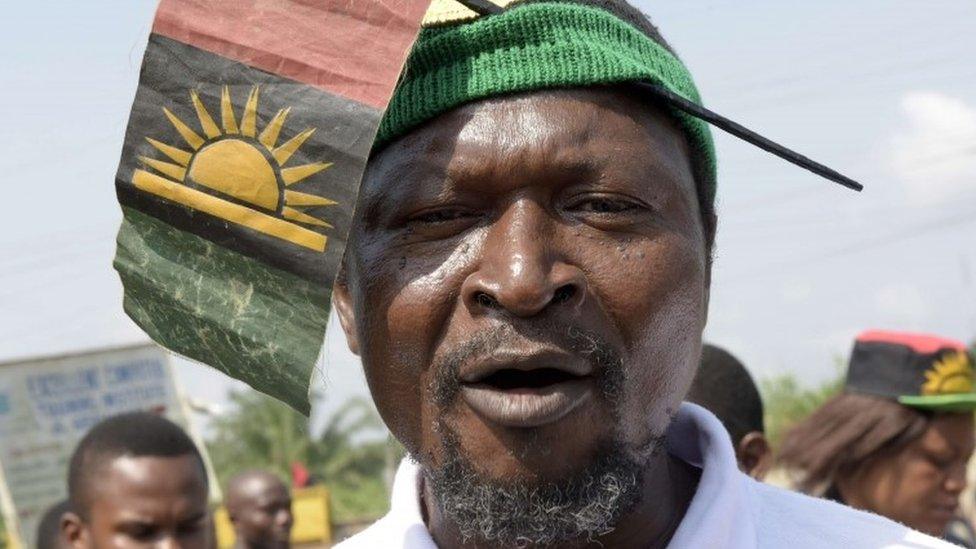
- Published15 January 2020
